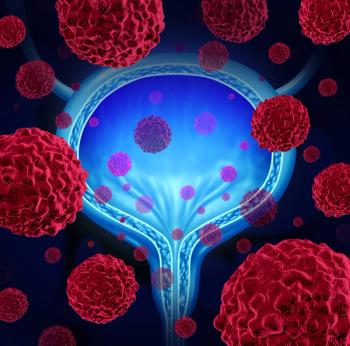
The first year after treatment yielded statistically significant improvements in overall QOL and symptoms within the first year of treatment for relapsed/refractory large B-cell lymphoma

The first year after treatment yielded statistically significant improvements in overall QOL and symptoms within the first year of treatment for relapsed/refractory large B-cell lymphoma

A single-center study assessed the real-world experience of 20 patients treated with idecabtagene vicleucel with relapsed and refractory multiple myeloma who had exhausted at least 4 lines of prior therapy.

Tisa-cel was associated with a more favorable safety profile in the analysis.

In 2 year follow-up data, 20 patients (19.4%) remained free from high-grade recurrence.

Results of the phase 2 SPEARHEAD-1 trial showed a high overall response rate with afamitresgene autoleucel in advanced synovial sarcoma or myxoid/round cell liposarcoma.

Research presented at the 2020 ASH Annual Meeting may have found an alternative path forward for patients who do not respond to immunotherapy treatment for large B-cell lymphomas.

December 5, 2020 - Engineering chimeric antigen receptors T cells to overcome CD58 loss may provide a path forward for patients with large B-cell lymphomas who do not respond to treatment with immunotherapy.

Three-year follow-up data for the phase 2 study of the first-in-class inhibitor of apoptosis protein antagonist, xevinapant, in combination with standard cisplatin-based concomitant fractionation chemoradiation therapy reduced the risk of mortality by half compared with CRT alone in patients with locally advanced squamous cell carcinoma of the head and neck.

Lifleucel, a TIL therapy, is being investigated in patients with metastatic melanoma.

Based on available data, treatment is not that obvious for patients with metastatic non–small cell lung cancer who are tolerating treatment well and have either a complete or partial response to therapy.

Two novel CAR T-cell therapies designed to attack solid tumors are showing signs of antitumor activity and tolerability in early clinical trial findings, fueling optimism about expanding this emerging form of immunotherapy beyond hematologic malignancies.

Napabucasin, a novel therapy that targets cancer stem cell pathways, is being investigated in a phase III clinical trial that is believed to be the largest study ever conducted in pancreatic ductal adenocarcinoma in the metastatic setting

Published: December 7th 2020 | Updated:

Published: June 5th 2021 | Updated:

Published: December 5th 2020 | Updated:

Published: February 9th 2020 | Updated:

Published: July 7th 2020 | Updated:

Published: May 10th 2019 | Updated: